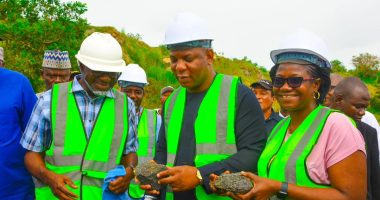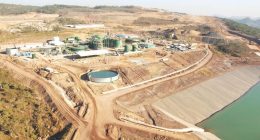The recent plunge in iron ore prices, driven by a weakening Chinese property sector, presents a unique opportunity for Nigeria to rejuvenate its steel industry and boost economic development. As iron ore prices hit their lowest levels in two years, falling below $100 per tonne, Nigeria must strategically leverage this situation for long-term growth.
Nigeria should seize this moment to accelerate the revival of its domestic steel production. The Ajaokuta Steel Company, long plagued by setbacks, could benefit from reduced raw material costs. The government should prioritise completing the plant’s rehabilitation and ensuring its operational readiness. With lower input costs, the plant could become economically viable sooner than previously anticipated.

While this nation has significant iron ore reserves, particularly in Kogi State, extraction has been limited. Nigeria must improve its iron ore mining capabilities by investing in modern mining techniques and infrastructure.
Hopefully, Nigeria will not only meet domestic demand but potentially become a net exporter of iron ore in the future.
In January, Nigeria’s Minister of Steel Development Prince Shuaibu Audu met with a representative of an Indian Company, Jindal Steel Mr. Mukesh Sharma to chart a course for the establishment of a world class steel plant in Nigeria.
The Minister confirmed that the move followed after President Bola Tinubu “successfully secured a Steel Investment Deal with the Indian Company on the sidelines of the G-20 Summit in September 2023, in New Delhi, India,”
He added that “discussions are also on with relevant Government Agencies on the best location to establish the Indian Company to build the Steel Plant.”
There should be incentives for private sector investment in steel production. Tax breaks, streamlined regulations, and improved infrastructure could attract both domestic and foreign investors looking to capitalise on the current market conditions. This could lead to the establishment of new mills and the modernisation of existing ones, creating jobs and spurring economic growth.
With potentially cheaper steel available, downstream industries that rely on steel such as automotive manufacturing, construction, and shipbuilding could become more competitive. The government should develop targeted policies to support these sectors, creating a more robust and diversified industrial base.

I must sound a warning note quickly, Nigeria must be cautious. The current dip in iron ore prices may be temporary, and over-reliance on cheap imports could hinder the development of a self-sufficient steel industry. Therefore, any strategy should balance short-term gains with long-term sustainability.
Our perennial infrastructural challenges that has historically hampered industrial growth must be fixed using reliable power supply, efficient transportation networks, and modern port facilities in order for a steel industry to thrive.
Moreover, Nigeria should invest in research and development to improve steel production efficiency and explore alternative technologies. This could include methods to utilise the country’s abundant natural gas in steel production, potentially giving Nigeria a unique competitive advantage. The time to act is now – Nigeria must strike while the iron is hot, or in this case, while steel












